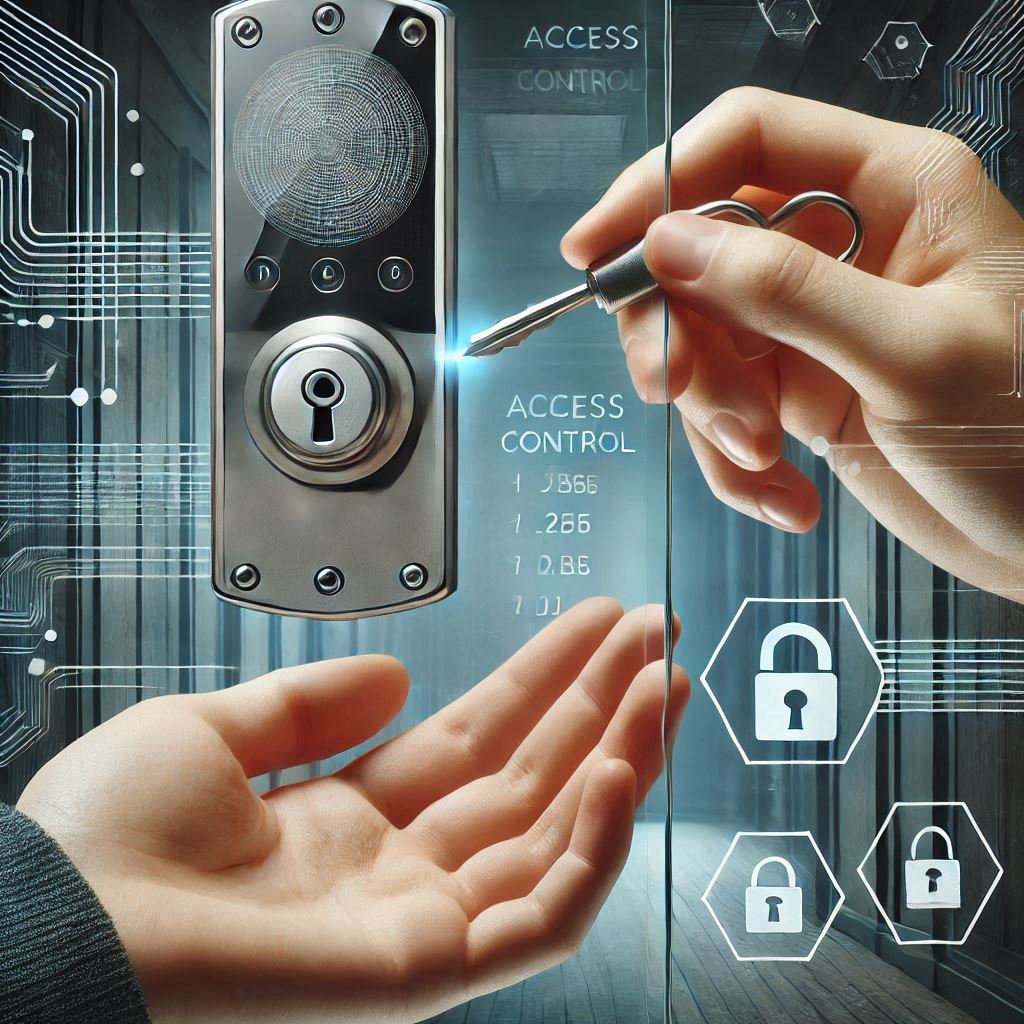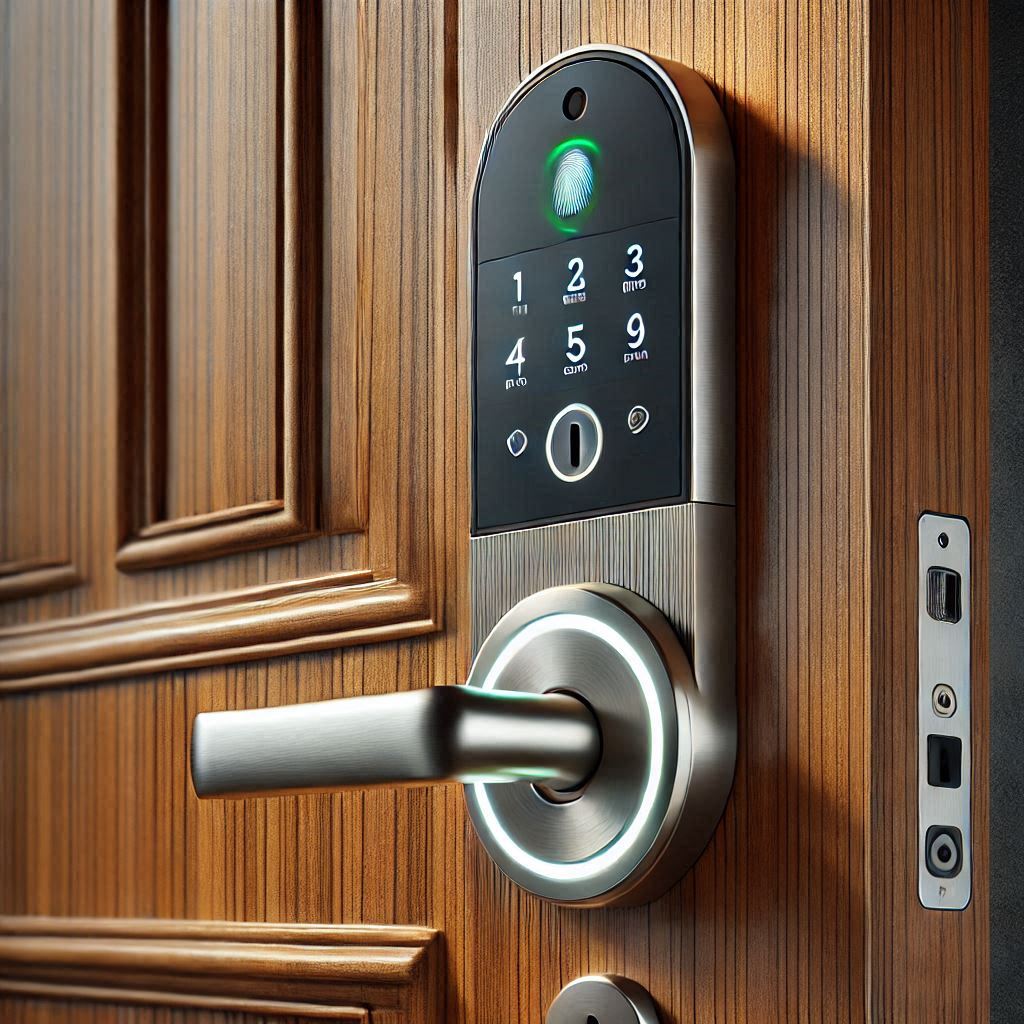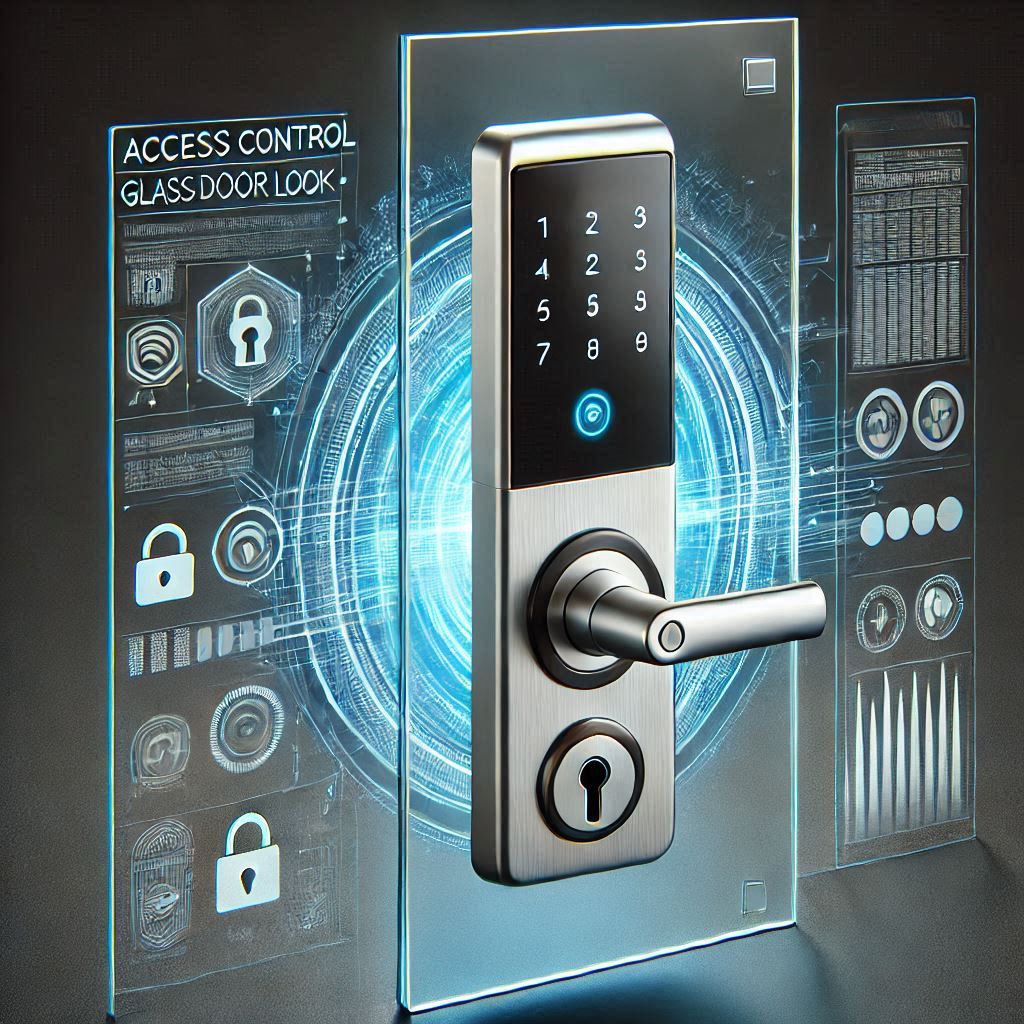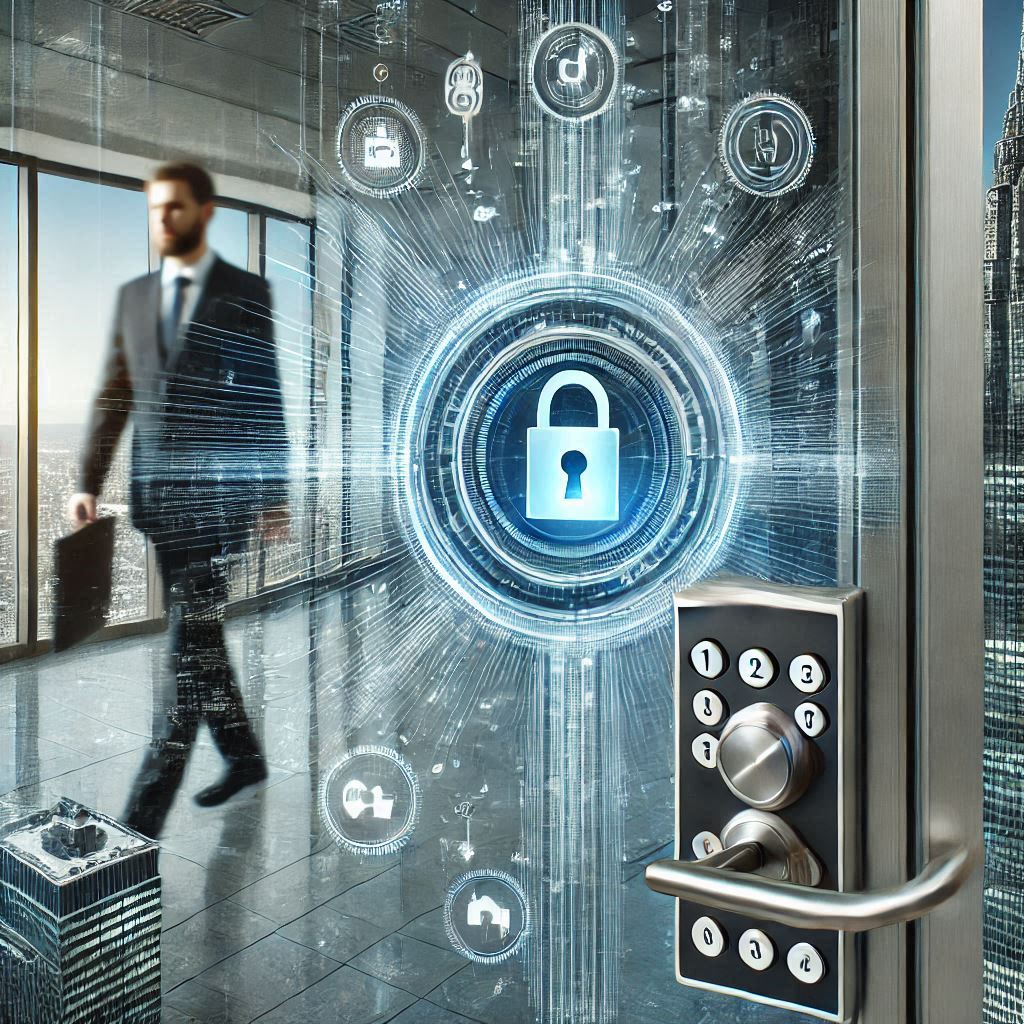The Best Access Control Door Lock System: Safeguarding Your Space in 2025+
Access control door lock systems have become an essential component of modern security strategies. From residential homes to large corporations, these advanced systems provide an effective means of controlling who gains access to a specific area. In this article, we will explore the world of access control door lock systems, their evolution, types, benefits, key features, and much more.

The Access Control Door Lock System is a pivotal advancement in modern security measures, enabling individuals and organizations to manage and monitor entry points effectively. This system combines technology, convenience, and safety, offering robust solutions to safeguard physical spaces against unauthorized access.
Over the years, the need for heightened security has led to the development of innovative systems. The Access Control Door Lock System is one such innovation that has transformed how doors are secured, accessed, and monitored. By integrating cutting-edge technology, this system ensures that only authorized personnel can enter designated areas, thereby enhancing overall security.
Components of an Access Control Door Lock System
The Access Control Door Lock System consists of several key components that work in unison to provide a seamless and secure experience. These components include:
- Authentication Mechanism:
- Biometric scanners (fingerprint, retina, or facial recognition)
- Keypads for PIN entry
- RFID card readers
- Control Panel:
- Acts as the central processing unit, interpreting signals from authentication devices and controlling the locking mechanisms.
- Locking Mechanism:
- Electromagnetic locks
- Electric strikes
- Deadbolts integrated with electronic control
- Access Management Software:
- Enables administrators to configure access levels, monitor entry logs, and manage user credentials.
- Power Supply Unit:
- Ensures uninterrupted power to the system, often supplemented with backup batteries to maintain functionality during outages.
- Communication Interface:
- Connects the system to a network, allowing remote monitoring and control.
Functionality of the Access Control Door Lock System
The functionality of an Access Control Door Lock System can be summarized as follows:
- User Identification and Authentication:
- When a user approaches the door, they present their credentials, such as a fingerprint, PIN, or RFID card.
- Signal Processing:
- The control panel validates the credentials against a pre-configured database.
- Access Decision:
- If the credentials match, the control panel sends a signal to unlock the door. If not, access is denied, and an alert may be triggered.
- Audit and Monitoring:
- Entry logs are recorded, enabling administrators to review access history.
Benefits of the Access Control Door Lock System
The Access Control Door Lock System offers numerous benefits, making it an indispensable tool for modern security:
- Enhanced Security:
- Prevents unauthorized access and reduces the risk of theft or vandalism.
- Convenience:
- Eliminates the need for traditional keys, which can be lost or duplicated.
- Scalability:
- Suitable for small offices as well as large enterprises, with options to integrate multiple doors and locations.
- Real-Time Monitoring:
- Allows administrators to monitor access remotely and in real time.
- Customizable Access Levels:
- Ensures that individuals can only access areas relevant to their roles.
- Cost-Effective:
- Reduces the need for physical security personnel and minimizes risks associated with breaches.

Applications of Access Control Door Lock Systems
- Residential Buildings:
- Ensuring only residents and authorized visitors can access the premises.
- Corporate Offices:
- Controlling employee access to different areas based on their roles.
- Educational Institutions:
- Securing laboratories, libraries, and administrative offices.
- Healthcare Facilities:
- Restricting access to sensitive areas such as pharmacies and operating rooms.
- Government and Defense Establishments:
- Protecting classified information and sensitive areas.
- Retail Outlets and Warehouses:
- Preventing unauthorized entry to stockrooms and cash handling areas.
Challenges in Implementing Access Control Door Lock Systems
While the Access Control Door Lock System is highly effective, its implementation can pose certain challenges:
- Cost of Installation:
- High initial costs may deter small businesses or individuals from adopting the system.
- Complexity of Integration:
- Integrating the system with existing infrastructure and networks can be challenging.
- Maintenance and Upgrades:
- Regular maintenance and software updates are essential to ensure optimal performance.
- Potential for System Failures:
- Dependence on electricity and network connectivity can lead to downtime during outages.
- User Resistance:
- Some users may be resistant to adopting new technologies, especially if they perceive them as intrusive.
Future Trends in Access Control Door Lock Systems
The Access Control Door Lock System continues to evolve, driven by advancements in technology. Emerging trends include:
Developing systems with lower power consumption to reduce environmental impact.
AI-Powered Access Control:
Leveraging artificial intelligence for predictive analysis and enhanced security measures.
Cloud-Based Solutions:
Enabling remote management and scalability through cloud integration.
Integration with IoT:
Connecting access control systems with other IoT devices for a seamless smart building experience.
Mobile Credentials:
Using smartphones as authentication devices through apps and NFC technology.
Biometric Advancements:
Incorporating more sophisticated biometric technologies, such as vein pattern recognition and voice authentication.
Energy Efficiency:

Introduction to Access Control Door Lock Systems
Access control door lock systems are designed to manage and monitor the entry and exit of individuals into a space. This technology has replaced traditional lock and key methods with smart, digital solutions. These systems ensure that only authorized personnel can access restricted areas, enhancing security and convenience.
The Evolution of Access Control Technology
Access control technology has evolved significantly over the years. From simple keycard systems to sophisticated biometric recognition, advancements have made it easier to secure properties. The integration of technology and security has transformed the way we protect our spaces.
Types of Access Control Door Lock Systems
Electronic Keypad Locks
Electronic keypad locks are user-friendly and secure. Users enter a predefined code to unlock the door. They are commonly used in residential settings, providing easy access to homeowners and authorized guests.
Card Access Systems
Card access systems use proximity cards or key fobs for entry. They are commonly found in commercial and educational institutions. These systems offer scalability and can be easily managed.
Biometric Door Locks
Biometric door locks use unique biological characteristics like fingerprints or retinal scans for access. These are highly secure and often used in high-security environments.

Benefits of Access Control Door Lock Systems
Enhanced Security
Access control systems provide a higher level of security than traditional locks. Unauthorized access is prevented, reducing the risk of break-ins and theft.
Convenience and Accessibility
Authorized users can enter without the hassle of traditional keys. This convenience is especially valuable in busy environments.
Activity Monitoring
Access control systems keep a record of who enters and exits, providing valuable data for security and management.
Key Features to Consider
When selecting an access control system, it’s essential to consider these key features:
Authentication Methods
Choose the method that best suits your needs, whether it’s card access, biometrics, or key codes.
Integration with Other Systems
Look for systems that can integrate with your existing security and automation systems.
Scalability
Ensure the system can grow with your needs and adapt to your space’s changing requirements.

How to Choose the Right Access Control System
Selecting the right access control system involves considering your specific requirements, the level of security needed, and your budget. Consulting with a security professional can help you make an informed decision.
Installation and Maintenance
DIY vs. Professional Installation
You can install some systems yourself, while others require professional installation. The choice depends on your technical skills and the complexity of the system.
Ongoing Maintenance
Regular maintenance is crucial to ensure the system functions correctly. This includes software updates, hardware checks, and user management.
Access Control in Different Settings
Access control systems are applicable in various settings:
Residential
Protect your home and loved ones with access control systems tailored to residential needs.
Commercial
Secure your business premises, control employee access, and monitor entry and exit.
Healthcare
Protect patient information and restricted areas within healthcare facilities.
Educational Institutions
Manage access to classrooms, laboratories, and administrative offices in schools and universities.

Challenges and Concerns
Privacy and Data Security
Access control systems collect data about user movements, raising concerns about privacy and data security.
Initial Investment
Implementing an access control system requires an initial investment, but the long-term benefits outweigh the cost.
Real-World Applications
Case Study: Office Building Security
Discover how an access control system transformed the security of a bustling office building.
Case Study: Smart Home Access
Explore the convenience and security of an access control system in a modern smart home.
Future Trends in Access Control
As technology continues to advance, access control systems are poised for further innovation. Some future trends to watch include mobile access control and artificial intelligence integration.

Conclusion
Access control door lock systems are a crucial element of modern security. They offer enhanced security, convenience, and the ability to monitor access effectively. Whether it’s for your home, office, or other facilities, these systems play a vital role in safeguarding your space.
Frequently asked questions (FAQs):
How do access control systems enhance security?
Access control systems prevent unauthorized entry and provide an audit trail of user activity.
What are the initial costs associated with installing an access control system?
The initial costs include hardware, software, and installation, which can vary based on the system’s complexity.
Can access control systems be integrated with other security solutions?
Yes, many access control systems can be integrated with CCTV, alarms, and automation systems.
What are the potential privacy concerns with access control systems?
Privacy concerns may arise from the collection and storage of user data. Ensure compliance with data protection regulations.
Are access control systems suitable for small businesses?
Yes, access control systems can be tailored to the specific needs and budget of small businesses







